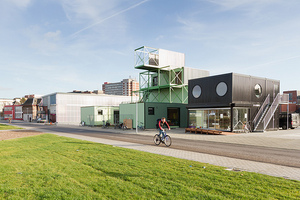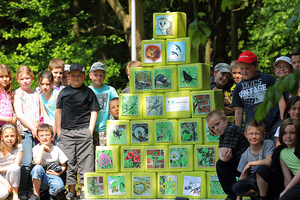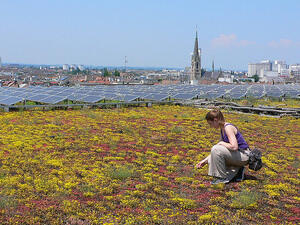All EU regions were invited to submit projects which had received funding from the European Regional Development Fund (ERDF) or the Cohesion Fund after 1st January 2000. In the current 5th round of Awards, the European Commission received a record 107 applications, of which 24 were chosen as finalists. The five Award categories for 2012 are:
· Smart Growth: Innovative projects or schemes supporting service innovation in its different forms.
· Sustainable Growth: Investments in ecosystem services and green infrastructure leading to sustainable regional development.
· Inclusive Growth: Strategies, initiatives or projects addressing the challenge of demographic change and supporting active ageing. (2012 is the "European Year of Active Ageing and Solidarity between Generations")
· CityStar Category: Integrated strategies for the development of deprived urban areas.
· Information and Communication Category: Informing the public on the internet about projects benefiting from EU Regional policy.
THE WINNERS
Category 1: Smart Growth - Eco World Styria
The mission of ECO WORLD STYRIA has been to increase the concentration of successful clean technology (cleantech) companies in the Austrian region of Styria and to ensure that this cluster becomes a competitive location worldwide for cleantech innovators. Since the beginning of the project, eco-innovation has generated 5.000 new jobs, increasing company staff on average by over 10 percent per year.
Category 2: Sustainable Growth - GRaBS ('Green and Blue Space Adaptation for Urban Areas and Eco-towns') - European Territorial Cooperation (ETC)
The GRaBS project (foto) – Green and Blue Space Adaptation for Urban Areas and Eco-towns – sets out to provide the tools and knowledge to ensure that urban development across Europe, both existing and new, is suitably adapted to the impacts of climate change. Its key objective is to improve capacity and skills in the use of ‘green’ and ‘blue’ infrastructure. GRaBS is enabling urban designers, architects and planners to create or remodel outdoor spaces and buildings inorder to ensure that they are resilient to climate change and extreme weather. The project has 14 partners, drawn from eight member states (AT, EL, IT, LT, NL, SE, SK and UK), representing authorities facing a wide range of climate change challenges.
Category 3: Inclusive Growth - 'Older people for Older people' (O4O) - ETC
Working with groups of older people in rural communities in Europe's northern periphery, (in Scotland, Sweden, Finland, Northern Ireland and Greenland) O4O has capitalised on the collective skills, experience and knowledge of a generation to identify the priorities for support services and activities, putting older people at the centre of policy-making.
Category 4: CityStar - SÖM 'South East Malmö'
The SÖM project set out to create a socially, environmentally and financially sustainable environment in four districts of South East Malmö, particularly affected by unemployment and dependency on social benefits. The long-term effect of the project has been the creation of a strategic partnership and the development of an action plan for the area and the city as a whole. It has increased the participation of citizens, private actors, property owners and the commercial and industrial world in efforts for future city development.
Category 5: Informing the public Regional operational programme for Podlaskie Voivodeship 2007-2013
The Podlaskie region of Poland's website – www.podlaskiedotacje.pl – in both Polish and English, is one of the most important tools in its communication strategy. It presents comprehensive, detailed information on EU investments (including presentations, photos, and maps showing the investment location) and programme beneficiaries. It allows quick and efficient searches and helps to promote EU programmes and investment to various audience groups. The website provides user-friendly tools to view the effects and implementation status of projects, presenting examples of good practice that have significantly contributed to the region's growth.
Visit EbS to see video footage and portraits of the winning projects. For more details on 'Regions for Economic Change', including the programme, visit the conference website


Open LAB Ebbinge (OLE) is a unique international example of innovative, temporary city building where an area of wasteland in the city of Groningen (NL) is being transformed into a centre for business creativity.
The Hainaut Cross-Border Nature Park (PNTH) straddles the border between Wallonie (BE) and the Nord-Pas de Calais region of France. a cross-border management system has been set up to protect the area and promote its socioeconomic development. Find out more: bit.ly/LyGjbE
Pictures © EU Regional

